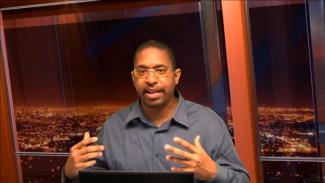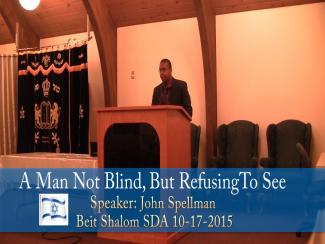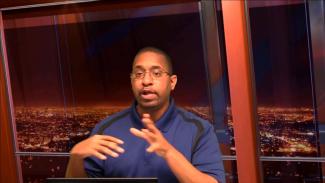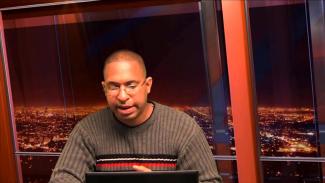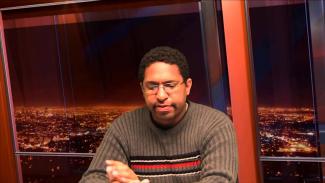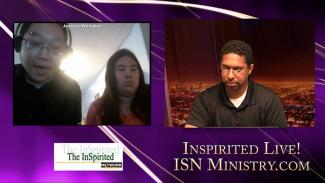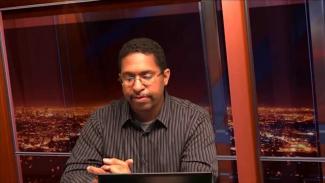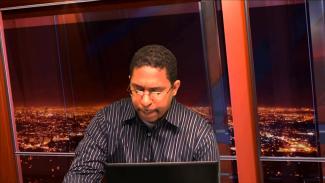Jeremiah brought a message of rebuke to the people of Judah. Because this was not a popular message, he met a lot of opposition. As people planned to do him harm God was with him to deliver him. Why did so many reject the warnings of the prophet? How does this still happen, even in our time today? Why were people more willing to listen to false prophets? If God hadn't sent them, who did? Why was Jeremiah told not to pray for the people? Are there limitations to God's mercy? If so, what happens when those limits have been reached? Is repentance always genuine?
All Video Media
Choose from all Inspirited Network programming or select a topic from the menu.Who were the last five kings of Judah? How did God reach out to them? What was there response to the message of Jeremiah the prophet and God's Word? What lessons can we draw from this for our time today? What made many of the kings of Judah so stubborn? How was Josiah's reign different? What did Josiah do during his reign that contrasted the other kings and what message does that hold politicians in today's time? In this lesson we cover Josiah, Jehoahaz, Jehoiakim, Jehoiachin, and Zedekiah. We explore the events that led to the Babylonian captivity and the parallels with today.
Why is humanity in crisis? How does this crisis impact the lives of God's people? In what way did Jeremiah face this crisis in his time? How does this relate to challenges the church faces from both the secular world and within the church itself? In what ways can challenges from within be worse than challenges without? In what ways did the history of Israel and Judah show crisis from within? Why did God punish His chosen people through other nations? What was God trying to teach them? As we explore the book of Jeremiah, we will see how many things parallel today.
This week we start a new quarter on the book of Jeremiah the Prophet. How was this prophet called? What can we know about his background and ministry? What exactly is a prophet's job? What kinds of messages does God send through prophets? How does God communicate with prophets? Are they always willing to accept the call? Will people readily accept their message? In what way was Jeremiah's experience similar to that of Jesus? This week we take our first look at Jeremiah.
What was the mission and message of Paul all about? What could we say was central to his message? What did Paul preach? How did he adapt his message to reach different kinds of audiences? How important was the concept of the resurrection in Paul's teaching? In this lesson we will explore the techniques Paul used to reach Jewish and Gentile audiences. Like Jesus, Paul used what was familiar to his listeners to explain what was unfamiliar to them. In looking at how Paul did this, we can learn a great deal about teaching spiritual truths to people today.
What do we know about Paul before his call on the road to Damascus? What kind of person was he? What can we learn about God's willingness to save the worst sinners from the story of Saul's conversion to the Apostle Paul? How did the early Christians at first respond to Paul's conversion story? Are we any different today with people who have Paul's background? There is much we can learn from Paul's story as we seek to make disciples of men today. Paul's story is a story of hope for the undeserving and those who have a dark past in which they have made the most terrible mistakes.
This week we discuss Philip the evangelist. But is this Philip different from other Philips in the Bible? How can we know for sure? What can we learn about mission work from what the Bible says about this Philip? Why was Philip chosen to serve as a deacon? What qualities did he have that made him stand out? What events later lead to his success as an evangelist? What can we learn from this as Christians today? What does the prophetic ministry of Philip's daughters say about Philip? What might this mean for those called to ministry today?
What can we learn from Peter's outreach to the gentiles? How did it contrast from Paul's? What can we learn from the story of Cornelius and the conversion of his friends and family? What important lessons did Jews of the early church have to learn? What might that mean for the church today? Does culture or race matter when it comes to salvation? This week as we explore these lessons we'll look at the stories of early gentile converts to Christianity.
Is the church really supposed to reach out to people of different backgrounds, cultures, ethnicity, and races? Is God a respecter of persons? Is salvation exclusive based on demographics of a person’s birth? Was it always God’s plan to reach non-Jews? How did Jesus relate to non-Jews? Why did He focus primarily on a Jewish audience? What do his interactions with gentiles teach us about reaching people of different backgrounds? What are the implications for the church today?

